Expungement is a legal process in which criminal convictions are erased in the eyes of the law. To expunge a charge means to remove it from your criminal record. Expungement is important to individuals, because prior convictions will follow you around like a sore thumb. For example, many employers often ask applicants to disclose their criminal record and explain prior criminal convictions in employment interviews.
The Tennessee Administrative Office of the Courts has a Guide to Expungements in Tennessee. It explains that you may be entitled to an expungement in the following circumstances:
- dismissed charges;
- a case where a person was arrested but not charged;
- a “no true bill” was returned by a grand jury, which means the grand jury voted against indictment of the accused;
- a case goes to trial and resulted in a ‘not guilty’ verdict;
- a case resulted in a “nolle prosequi” (prosecution will not be pursued);
- an order of protection was successfully defended and denied by a court following a hearing;
- a “retired” case— depending on the jurisdiction, this means that after a certain period of time with the individual exhibiting good behavior and not incurring new charges, the “retired” charge can become a “dismissed” charge and thus eligible for expungement;
The general process for expungement is that you must file a petition for expungement in the same court in which you were charged. This could be in general sessions court or circuit court. The District Attorney’s Office will then provide you with a copy of a petition with a checklist that you must follow. You will be required to have all information (docket #, etc.) regarding your case as well as a copy of your record from the court clerk.
While reviewing your charges, it is important to understand that even some felony criminal convictions are also eligible for expungement. In 2012, the Tennessee General Assembly amended the expungement law to list a series of criminal offenses that can be expunged. This Tennessee law extends and explains who is an “eligible petitioner” and lists all “excluded” misdemeanors and “included” felony convictions eligible for expungement.
To learn more about the expungement process and search eligible charges visit https://www.tndagc.org/media/expungement/Expungement%20Checklist.pdf.
The expungement statute is very long and lists a number of expungable offenses. Some of these offenses include accessory after the fact, theft, forgery, failure to appear, evading risk where there is no risk to bystanders, and several drug offenses— all of which were added when the expungement law was amended. However, you must also be aware that there are convicted offenses that are not expungable. For example, domestic assault and stalking offenses. Additionally, several conditions must be met in order to expunge a prior offense, such as:
- Five years must have passed since the case was completed (as in five years from the point the sentence of confinement or probation ended);
- The actual offense must qualify under the expungement law (it must be a non-violent misdemeanor or class-E felony, and some offenses such as DUI and domestic assault are automatically ineligible; additionally, convictions occurring prior to November 1, 1989 are subject to different definitions of eligible offenses);
- The person must have paid all applicable court costs, fines, probation fees and restitution;
- The person must have completely satisfied all requirements of the sentence (such as probation requirements);
- The person must file a petition in the court where the conviction occurred, and pay an application fee, and
- At the time of filing, the person must have never been convicted of any criminal offense, including federal offenses and offenses in other states, other than the offense committed for which the petition for expungement is filed.
- The District Attorney has a right to challenge the petition, and the judge may decide to conduct a hearing on the matter
- If the judge denies the petition, then the person may re-apply two years later.
Lastly, The Tennessee Administrative Office for the Courts in their Guide to Expungements states: “If you are unsure about your situation, it’s best to talk to a lawyer for help.” PNC Law is available to consult with you to determine whether you can have your criminal conviction expunged. PNC Law has two committed criminal defense attorneys, Philip N. Clark and Alysse N. Gregory, who will evaluate your situation and determine if you are eligible for expungement.
While the service is not free, the process for expungement is well worth your time. Removing a criminal offense from your record could give you a new lease on life and open up greater employment opportunities for your future. Do not hesitate to call PNC Law today and schedule a consultation. An expungement could change your life.
